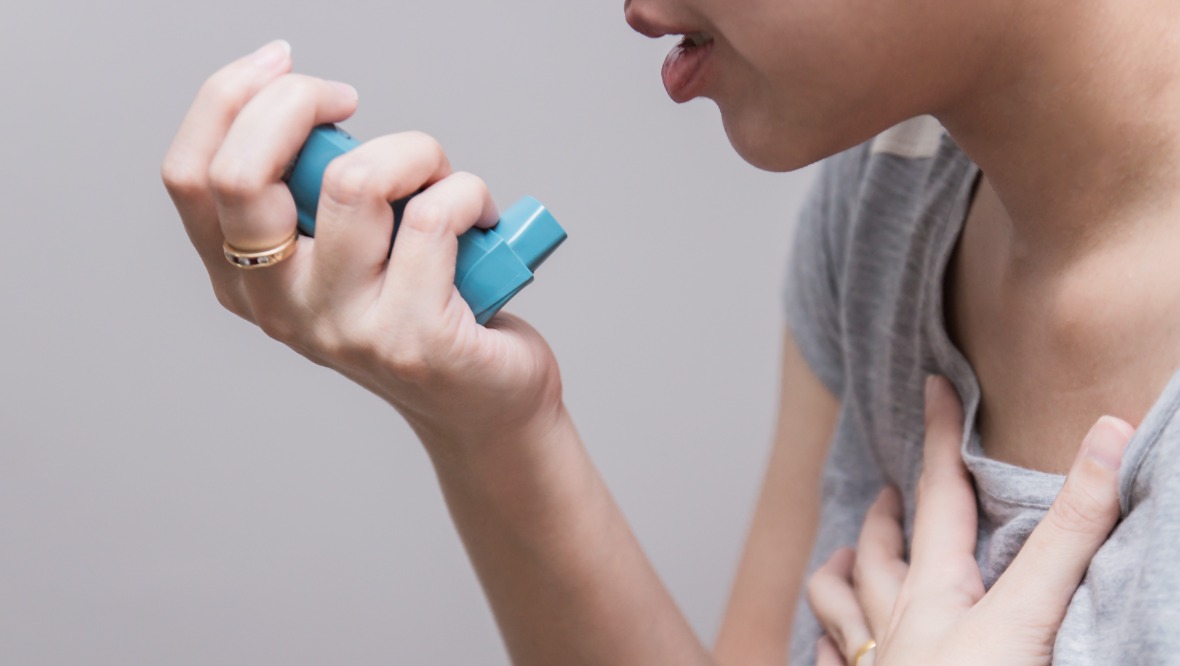Scots with lung conditions are being urged to be cautious ahead of Bonfire Night as a new study reveals two in five people with asthma say smoke and poor air quality triggers their condition.
Asthma and Lung UK Scotland say the combination of bonfire smoke, cold air and the higher amount of colds and viruses can be “deadly” for the 368,000 people living with asthma and 130,000 with chronic obstructive pulmonary disease (COPD) across the country.
Of those surveyed by the charity, 39.7% of people living with COPD said poor air quality made their symptoms worse, while 66.1% said symptoms were brought on by the cold air.
One 65-year-old woman named Eve, from East Kilbride, told the charity how she was diagnosed with asthma 30 years ago but believes she may have had it since childhood.
She said: “Fifteen years ago, I suffered a truly awful coughing fit after leaving the house one smoky Bonfire Night, coughing so much, I couldn’t even call for help. I just couldn’t get it under control, my chest was tight, and I was struggling to breathe.
“Luckily, I had my inhaler with me and didn’t need to have to go to A&E, but it was very frightening.
“Since that time, for a good few days before November 5, and for a while after too, I am house bound, with the windows sealed and the outside doors shut.
“I don’t take the risk now; I just stay indoors and don’t leave the house at all at the beginning of November and wait for Bonfire Night to be over.”
‘I suffered a truly awful coughing fit after leaving the house one smoky Bonfire Night, coughing so much, I couldn’t even call for help.’
Eve, from East Kilbride
The most recent official figures show that more than 7,600 people in the UK – 628 in Scotland – were admitted to hospital for emergency care for their asthma symptoms in November 2018.
Asthma and Lung UK say they received calls from more than 2,100 people needing help and advice in the same year.
Advice from the charity ahead of Bonfire Night includes:
· Take your preventer medicines as prescribed
· Always carry your reliever inhaler with you
· If you find that smoke is making you cough, stand well back from the fire
· Make sure your friends and family know what to do and when to get help if your asthma symptoms suddenly get worse
· Wrap a thin scarf loosely over your nose and mouth to warm the air before you breathe it in
· Read the charity’s guide ‘what to do in an asthma attack’ here: Asthma attacks | Asthma UK
Joseph Carter, head of Asthma and Lung UK Scotland said: “Smoke from bonfires and fireworks can stay in the air for quite a long time, creating areas of air pollution that can trigger asthma attacks or symptoms such as coughing, wheezing and breathlessness.
“Fireworks and bonfires can be a great source of fun and entertainment but coupled with the cold and damp weather in November, it can be a dangerous combination for those living with asthma or other lung conditions.
“We would caution people who find smoke is a trigger to stay indoors on November 5 if possible.
“For those planning to go to a bonfire event, we would advise people to stand well back from the fire, have their reliver inhaler with them and let family and friends know what to do if you do have an asthma attack.”
Follow STV News on WhatsApp
Scan the QR code on your mobile device for all the latest news from around the country


 iStock
iStock
























